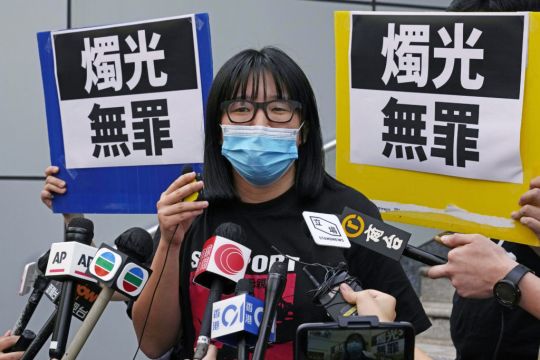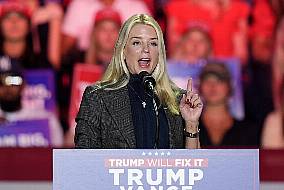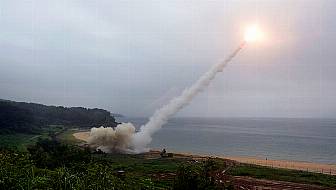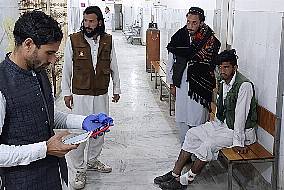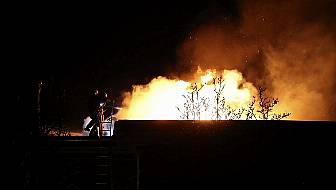Three former organisers of Hong Kong’s annual vigil in remembrance of victims of China’s 1989 crackdown on pro-democracy protests have been jailed.
Chow Hang-tung, Tang Ngok-kwan and Tsui Hon-kwong were each handed four-and-a-half months in prison for failing to provide authorities with information on the group in accordance with a national security law.
The three were arrested in 2021 during a crackdown on the city’s pro-democracy movement following massive protests more than three years ago. They were leaders of the Hong Kong Alliance in Support of Patriotic Democratic Movements of China and were found guilty last week.
The alliance was best known for organising candlelight vigils in Hong Kong on the anniversary of the Chinese military’s crushing of Tiananmen Square pro-democracy protests in 1989, but it voted to disband in 2021 under the shadow of the Beijing-imposed national security law.
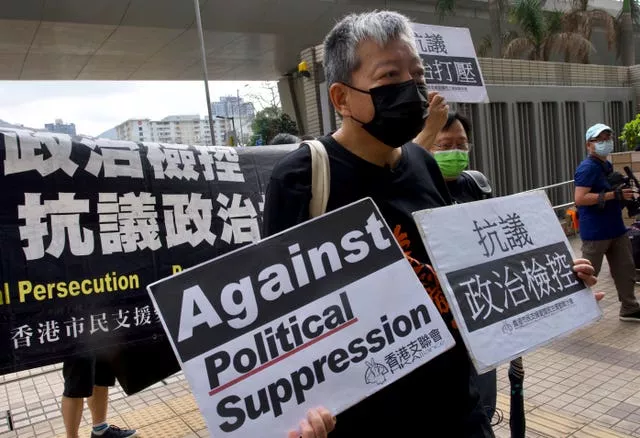
Supporters say its closure has shown freedoms and autonomy that were promised when Hong Kong returned to China from the UK in 1997 are diminishing.Before its disbandment, police sought details about its operations and finances in connection with alleged links to democracy groups overseas, accusing it of being a foreign agent.
But the group refused to cooperate, arguing the police did not have a right to ask for its information because it was not a foreign agent and the authorities did not provide sufficient justification.
Under the security law’s implementation rules, the police chief can request a range of information from a foreign agent.
Failure to comply with the request could result in six months in jail and a fine of 100,000 Hong Kong dollars (£9,800) if convicted.
In her mitigation, Chow said the alliance was not a foreign agent and that nothing had emerged that proved otherwise, so sentencing them was about punishing people for defending the truth.
She said national security is being used as a pretext to wage a war on civil society.
“Sir, sentence us for our insubordination if you must, but when the exercise of power is based on lies, being insubordinate is the only way to be human,” she said.
Handing down the sentences, principal magistrate Peter Law said the case is the first of its kind under the new law and the sentencing has to send a clear message to society that the law does not condone any violation.
Mr Law, who was approved by the city’s leader to oversee the case, said he saw no justification for reducing the four-and-a-half-month sentence.
In previous legal proceedings, the court ordered a partial redaction of some information after prosecutors argued that a full disclosure of information would jeopardise an ongoing probe into national security cases.
Hence, some crucial details, including the names of groups that were alleged to have links with the alliance, were redacted.
Defence lawyer Philip Dykes said he could not say “how strong or weak” the alleged links were and that made mitigation difficult.
The annual vigil organised by the alliance was the only large-scale public commemoration of the June 4 crackdown on Chinese soil and was attended by massive crowds until authorities banned it in 2020, citing anti-pandemic measures.
Chow, along with two other former alliance leaders, Lee Cheuk-yan and Albert Ho, were charged with inciting subversion of state power under the security law in 2021. The alliance itself was charged with subversion.
The national security law criminalises secession, subversion, and collusion with foreign forces to intervene in the city’s affairs as well as terrorism. Many pro-democracy activists were silenced or jailed after its enactment in 2020.

In a separate case, Elizabeth Tang, who was arrested for endangering national security earlier this week, was released on bail on Saturday. Tang is a veteran union activist and also Lee’s wife.
In a statement on Thursday that did not provide a name, police said they had arrested a 65-year-old woman on Hong Kong Island for suspected collusion with a foreign country or with external elements to endanger national security.
“I feel clueless because my work is always about labour rights and organising trade unions. So I don’t understand why I was accused of breaking the law and endangering national security,” she told reporters on Saturday after being released.
